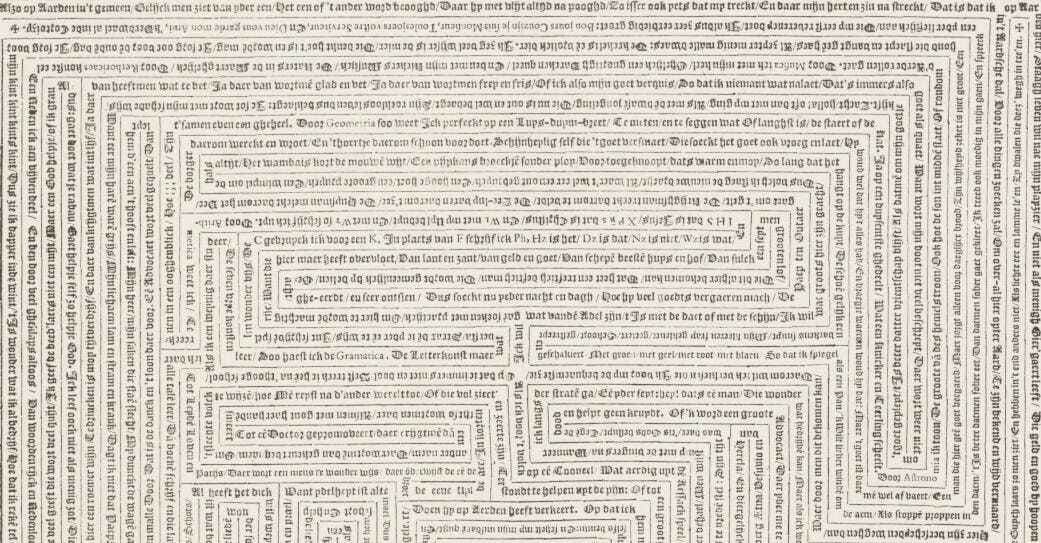- ill-defined (adj.)
- Posts
- aboutness (n.)
aboutness (n.)
on a bibliographic mystery

I came across something weird while reading China Miéville’s recent (amazing) book, A Spectre, Haunting, about The Communist Manifesto.
Early in the book, Miéville is writing about other commentators’ readings of the Manifesto and its rhetorical registers. In doing so, he makes an argument that the text’s enduring relevance is partly due to the way language doesn’t sit still and admits of ongoing interpretation. “One may certainly argue that ‘revolution’ has a particularly important sense, a center of gravity in [the Manifesto],” Miéville writes, “but what it doesn’t have is a single precise meaning.”
The odd thing comes in the next paragraph as he hones this point. It is here that he writes:
As one playful formulation has it, rather than being straightforwardly “about” something in particular, every text is inevitably surrounded by a “vibrating aboutness cluster.”33
(Emphasis is mine. Note the end note citation.)
I loved that phrase: vibrating aboutness cluster. A real piece of lexical maximalism of the sort that I find irresistible. I couldn’t stop thinking about it. I highlighted the passage to return to later.
When I did, I looked up the citation, note number 33 of Chapter One. Among the end notes, it reads:
For a brief discussion of this model, see <raptorvelocity.substack.com/p/the-vibrating-aboutness-cluster> (accessed 21 October 2020).
When I looked this up, what I found was a post by a writer going by Jared (“strategist and dinosaur lover”) on his Substack, Raptor Velocity, titled, straightforwardly enough, “The Vibrating Aboutness Cluster.” However, whereas Miéville cites the term to describe the polysemic nature of texts, Jared uses it to talk about the accumulation of influences that inform our thoughts, decisions and creative output. As I kept reading, I became even more perplexed.
You see, Jared attributes the “vibrating aboutness cluster,” confusingly, to China Miéville himself.
In answer to the rhetorical question “who are your influences?”, Jared writes, “the most honest answer I’ve ever heard was from China Miéville,” who reportedly described the inability to recognize the manifold influences that inform one’s writing in the following manner:
How was he to identify the various forces and factors that would have influenced, consciously or subconsciously, what he wrote? Is he even the person best-placed to do so - or would someone with more objectivity and distance be better able to see what 'nudged' his writing? … Miéville went on to describe this as the 'vibrating about-ness cluster' - the amorphous mass of stuff that subtly affects what the writer creates.
(Once again, emphasis mine.)
Unfortunately, Jared does not cite a source for this anecdote, mentioning only that it was in an interview (which makes for a large sample size in Miéville’s case).
I’ve not been able to stop thinking about this. China Miéville cites “a playful formulation” of a concept he discusses in his book, which citation in turn attributes said formulation to himself, but with a very different meaning.
Was it a mistake? An editorial oversight? Surely one would be gauche to describe one’s own quote as “a playful formulation,” right?
Ironically, Miéville’s odd citation—to be generous, as one surely ought to be toward China Miéville—is itself an example of what Jared glosses as “aboutness”: an amorphous set of influences that have become unmoored from memory just enough to appear as something other than what they actually are/were.
On the other hand, the citation conundrum also sits somewhat within Miéville’s definition in A Spectre, Haunting, as when he says, “Analysis is not closure, but an attempt to discern reasonable meaning(s) close to the core of that [aboutness] cluster, and to contest those that range too far from it.”
I suppose the term “vibrating aboutness cluster” itself vibrates as an aboutness cluster in its own right, a little textlet with a weird genealogy.